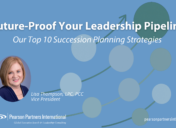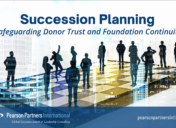Navigating to Your Dream Executive Role
Navigating to your dream executive role that aligns with your passions is not just aspirational—it is critical for enduring leadership success and fulfillment. As an experienced professional, you are not just looking for a role but seeking a path that resonates with your personal ambitions and professional strengths.
This guide will help you with navigating to your dream executive role, ensuring your skills and goals align with organizational visions and succession plans.
Strategic Self-Reflection
For senior professionals, self-reflection goes beyond identifying interests—it is about evaluating your legacy and envisioning future impacts. What types of leadership roles have you thrived in? Which of your contributions have been the most fulfilling? In which areas have you received praise and positive feedback from superiors and mentors? Reflect on these highlights to understand your core competencies and values, which are vital in charting your path to executive success.
Deepening Passion through Strategic Engagement
As an experienced professional, deepen your engagement in areas you are passionate about. This could mean leading new initiatives, spearheading corporate social responsibility programs, or mentoring younger colleagues. Such involvement enriches your expertise and visibly aligns your passions with organizational goals.
Market Analysis and Positioning
Conduct an in-depth analysis of the executive job market. Identify organizations and industries that align with your values and have a track record of nurturing executive talent. Leverage your established network and industry knowledge to position yourself as a thought leader and a viable candidate for future executive roles.
Skill Advancement and Thought Leadership
Evaluate the evolving competencies required for executive leadership within your organization and in similar external roles. Consider pursuing advanced training, certifications, or even executive education programs. Share your insights and expertise through professional networks, publications and speaking engagements, cementing your reputation as a thought leader in your field.
Strategic Networking
Leverage your professional network for more than job opportunities. Engage with peers, mentors and industry leaders to exchange ideas and insights. Active participation in industry panels, boards and associations can provide visibility and strengthen your professional relationships.
Executive Branding in Resumes and Communication
Your resume and professional communications should reflect your executive potential. Highlight strategic leadership experiences, significant achievements, and your ability to drive organizational change. Each interaction is an opportunity to demonstrate your vision and executive presence.
Targeted Interview Preparation
Prepare for executive interviews by focusing on strategic and quantifiable discussions. Articulate how your experience and vision align with the company’s long-term goals. Be prepared to discuss your approach to leadership, change management and innovation, showcasing your readiness for higher-level executive roles.
Persistence and Continuous Learning
The path to an executive role or promotion often requires patience and resilience. Stay informed about industry trends and be open to feedback and new learning opportunities. A career coach or executive mentor can offer invaluable guidance and support during this journey.
Navigating to your dream executive role requires strategic thinking and a deep understanding of your professional journey. By aligning your career ambitions with your passions, you can carve a path that leads to executive success and provides profound professional fulfillment. Remember, the path to executive leadership is as rewarding as the destination.

















